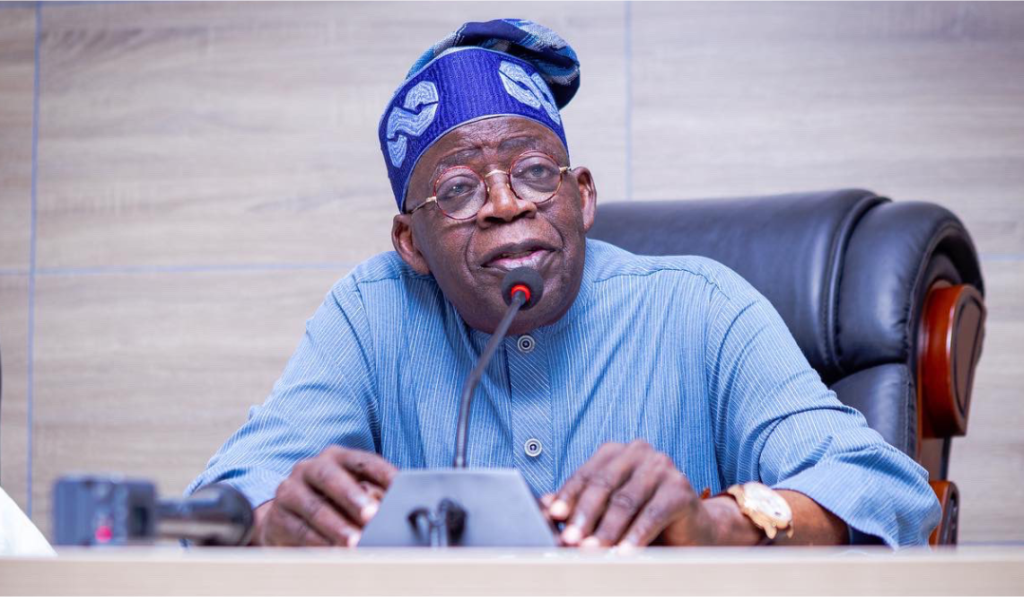Paragraph 1: Presidential Commitment to National Security
President Bola Tinubu has underscored his administration’s unwavering dedication to fortifying Nigeria’s security apparatus, emphasizing national security as a cornerstone of his governance. Addressing the Chief of Defence Staff Joint Task Force Commanders Conference in Abuja, he lauded the armed forces and security agencies for their persistent efforts in confronting security threats nationwide. Representing the President, Defence Minister Muhammed Badaru conveyed Tinubu’s commendation for the joint task forces and security agencies, acknowledging their instrumental role in maintaining peace and stability. The President reassured the nation of his commitment to providing continuous support to the military, security, and paramilitary agencies in fulfilling their assigned duties and responsibilities.
Paragraph 2: Collaboration and Innovation in Security Strategies
President Tinubu stressed the critical need for synergy among all security branches to effectively address the evolving security landscape. He encouraged conference participants to explore innovative solutions, integrate emerging technologies, and nurture multi-agency cooperation to counter the nation’s security threats effectively. This collaborative approach, underpinned by technological advancement and inter-agency coordination, is deemed essential to combat the increasingly complex security challenges facing Nigeria. The President’s call for innovation reflects the recognition that traditional security methods may not suffice in tackling the evolving nature of threats.
Paragraph 3: Emerging Security Threats and Adaptive Responses
Chief of Defence Staff, Gen. Christopher Musa, highlighted the growing security threats posed by the proliferation of improvised explosive devices (IEDs) and the increased use of armed drones by terrorist groups. He emphasized the urgent necessity for the military to adopt innovative and adaptive strategies to counter these threats effectively. Recognizing the dynamic nature of the security landscape, Gen. Musa underscored the need for vigilance and adaptability. He advocated for leveraging technology, enhancing intelligence sharing, and strengthening interagency cooperation as key elements of an effective counter-terrorism strategy.
Paragraph 4: Investment and Restructuring in the Defence Sector
Senate Committee on Defence Chairman, Senator Ahmed Lawan, called for increased investment in the defence and intelligence sectors to effectively address the country’s security challenges. He also advocated for a restructuring of military procurement processes to align with the operational needs of various security services. Lawan’s recommendations highlight the importance of resource allocation and efficient procurement procedures in strengthening national security. The call for restructuring suggests a need for streamlined and more responsive procurement systems to ensure that security services are adequately equipped to handle evolving threats.
Paragraph 5: Foreign Policy and National Security
Minister of Foreign Affairs, Ambassador Yusuf Tuggar, speaking through Permanent Secretary Ambassador Dunoma Ahmed, emphasized that promoting peace and security remains a core pillar of Nigeria’s foreign policy. He affirmed that the Ministry of Foreign Affairs and the military share a common goal in ensuring Nigeria remains a beacon of hope for Africa and the global community. This underscores the interconnectedness of foreign policy and national security, with diplomatic efforts playing a crucial role in fostering regional and international stability, which in turn contributes to Nigeria’s security. The statement reiterates Nigeria’s commitment to playing a constructive role in the international arena.
Paragraph 6: House of Representatives’ Call for Collaborative Security Operations
The House of Representatives urged the Nigeria Police Force and other security agencies to collaborate with local vigilantes in conducting thorough sweeps of forests nationwide. This initiative aims to prevent the harboring and continued presence of bandits and herdsmen in their hideouts. Following a motion by Edo lawmaker, Billy Osawaru, the House highlighted the detrimental impacts of insecurity on national growth, development, and investor confidence. The resolution underscores the urgency of addressing the multifaceted security challenges, from terrorism and banditry to cattle rustling and vandalism of critical infrastructure. The collaborative approach involving local vigilantes reflects a recognition of the importance of local knowledge and community engagement in combating security threats. The House directed its relevant committees to ensure compliance with the directive and report back within four weeks for further legislative action, demonstrating its commitment to addressing the urgent security concerns.


